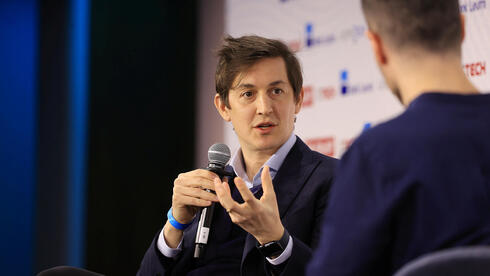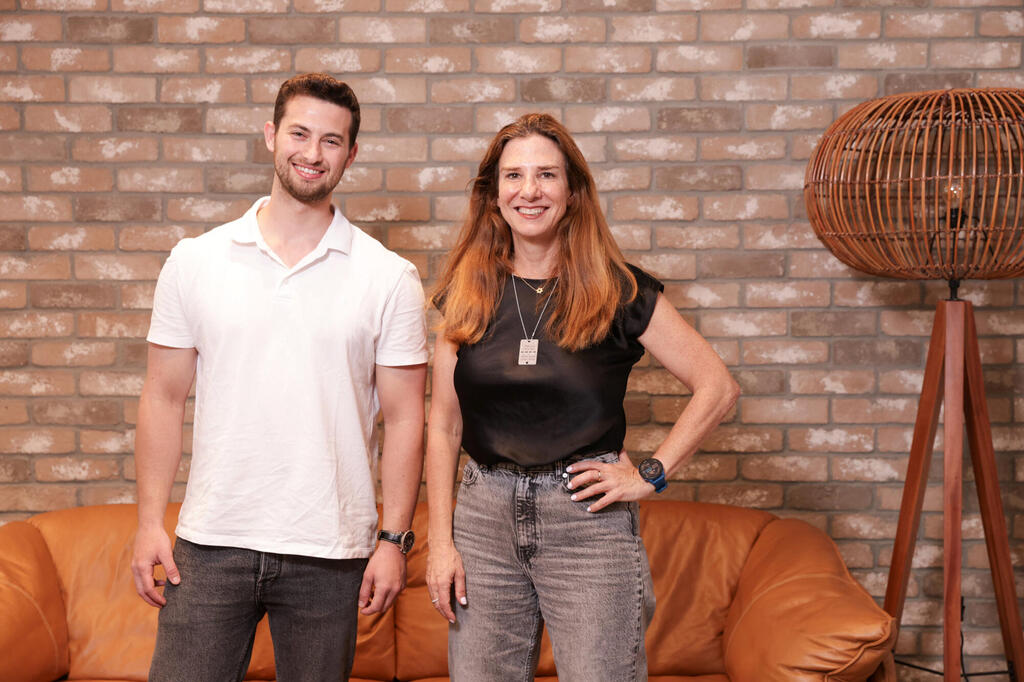
"In the current market the ability to make quick decisions is essential"
Tami Mazel Shachar from Incredibuild and Nirel Nemirovsky of Remembell talked about how to overcome business crises as part of the Growth+ project of Calcalist and Poalim Tech
In the face of an ongoing war and a volatile global market, Israeli high-tech entrepreneurs are demonstrating remarkable resilience. Tami Mazel Shachar, CEO of Incredibuild, and Nirel Nemirovsky, founder of Remembell, recently shared their experiences and insights on navigating crises and maintaining stability.
The conversation was held as part of the Growth+ project, involving a series of 1:1 meetings between experienced entrepreneurs and early-stage start-up companies, with the goal of providing advice, support, and knowledge on entrepreneurship, creativity, managing start-ups, and building companies for growth.
Tami, tell me about a crisis you encountered at the beginning of your journey and what you learned from it that can help young entrepreneurs.
"The very frequent changes at the beginning of the journey from 'high' to 'low' are significant. You might suddenly get a big opportunity, or another customer might tell you your technology is irrelevant, and this transition is destabilizing. It took me a moment to understand that I needed to maintain stability. Accept that crises come and go, but keeping my eyes on a constant level, not getting too excited or too down, really helps because it requires a lot of resilience. It’s not a process that takes a day or two; it can take years until you arrive. You need to develop resilience.
"From the beginning of the war, there were moments when it seemed like everything was lost. The world market was in decline even before the war with us, compounded by the ongoing software crisis in the U.S., which has caused many layoffs. Then you arrive here, and half of the employees are in the reserves, everyone is feeling down, and my son is fighting in Gaza. At that moment, you have to catch yourself and start solving the problem. The world is made up of small points, not big things, and if you deal with each one, you can overcome everything."
Nirel, what is the biggest difficulty you encountered this year?
"We managed to pivot in the last year as part of our process. In the current market, the ability to make quick decisions is essential, especially when recruiting is more difficult and valuations are no longer what they were."
Tami, what would you advise on this matter?
"We talked about the need to start by understanding the most significant value of the product and proving differentiation early. 'Fail fast' is critical in the first stage, especially when you are just two or three people. This is a good thing, but to do that, you need to focus and not go broad. Be very focused and reject customers who do not fit the ideal profile at this stage, because they will only see your company negatively and make you feel unsuccessful. You have to be very sharp to understand what the company does differently from others, know if there is a market, and show that ability.”
What did you learn from each other?
Nirel: "I learned a lot about correctly looking at the continuation of the company's life, both strategically and in terms of structure and personnel. Knowing how to enter additional markets and especially having various perspectives on the next steps."
Tami: "It's inspiring to meet entrepreneurs because it fosters optimism, but it also reminded me how difficult it is at the beginning. There are many decisions, and many startups fail in the early stages because it’s easy to get lost. You really have to know how to focus. Personality is a crucial part of the person behind the startup, and I was very impressed by the resilience."
Tell us about something interesting or surprising you found out about each other today.
Tami: "I realized that although Nirel studied in Kfar Hayarok, he is a native of Netanya. This is a good ingredient for an entrepreneur."
Nirel: "I found out that you joined the company as CEO. It takes courage to step into the shoes of someone who led a company to a certain point and make dramatic changes."
Michal Kissos Hertzog , CEO of Poalim Tech, who initiated the Growth+ project, said: "Within the project, I thought quite a bit about the situation of the entrepreneurs, about the fact that they are in the middle of such an intense activity of getting a startup up and running in days when everything around is about war and the challenges don't stop coming. And since the road from a start-up to a large and successful company is often long, this emphasizes to me the importance of maintaining balance: knowing how to take breaks, spend time with loved ones and stay healthy in body and mind, in order to succeed in the very intense effort required in a start-up.'















